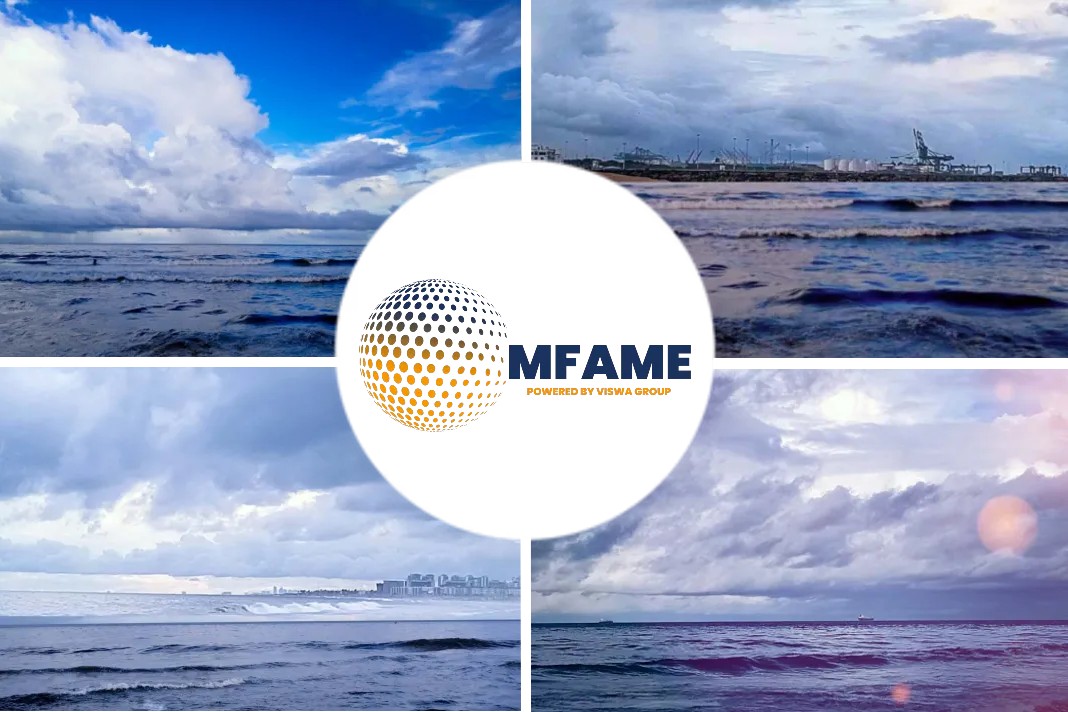With just 4 months left for the implementation on January 1, 2020, IMO’s sulphur cap rule, it is extremely worrying that compliant fuels are made available only in a limited number of ports and under unfavourable terms for voluntary early testing by ships, says an article published in IOL.
Sulphur cap
On that date all ships will be required to use fuel with a sulphur content of no more than 0.50% compared with the current rate of 3.5%.
To achieve this, ships will have to adopt one of the following ways:
- make use of compliant fuels;
- alternately can continue using fuel with the higher content with “scrubbers” installed.
The challenge is that it is unlikely that all merchant ships variously estimated at between 50000 and 90000 will become IMO 2020 compliant before the deadline.
Working of scrubbers
The most common method requires scrubbers placed alongside the exhaust systems, in the ship’s funnel, which douse the exhaust with seawater and reduce the sulphur content.
The polluted seawater is then recaptured into storage tanks for cleaning or disposal ashore, or is returned to the sea.
Scrubber bans
An increasing number of ports across the world have banned the use of “scrubbed” exhausts while in their domain.
Other port systems, including South Africa are prepared to allow such methodology, though legislation hasn’t caught up with the decision to go this route.
Intercargo’s concerns
Intercargo, the International Association of Dry Cargo Shipowners, has expressed its growing concern in view of the challenge lying ahead and the need for a smooth transition.
For one thing there is a question mark surrounding the global availability of safe compliant fuels, which Intercargo says is a key question that remains largely unanswered.
Apart from the above, the association says:
- It is extremely worrying that compliant fuels have so far been made available only in a limited number of ports and under unfavourable terms for voluntary early testing by ships, as charterers/operators are not currently obliged to purchase future compliant fuel.
- So, the practical testing of new fuels and crew training, which is only possible under real conditions aboard ships, is very limited and pushed to the end of the year.
- This situation creates significant safety implications for the operation of ships, which could eventually threaten the safety of seafarers, ships and cargoes, as well as the marine environment.
Urgent measures called for
It has called for urgent measures to be taken, including the fuel supply industry providing the market with significant volumes of compliant fuels at many ports around the world, “so that all sectors can be serviced.”
Other measures include that ship operators and charterers are called on to start purchasing these fuels, that a “Publicly Available Specification (PAS) related to the 0.50% limit is made available as soon as possible to provide guidance on the application of the existing ISO 8217 specification for marine fuels,” and that ship owners and operators enhance crew training.
Skills to manage compliance onboard
“The industry will largely rely on their skills for managing the new compliant fuels aboard ships on the high seas to ensure a smooth implementation of this drastic change,” Intercargo says.
SAMSA IMO 2020 ready but with lagging legislation?
The SA Maritime Safety Authority (Samsa) says that the South African marine sector is ready for the IMO 2020 sulphur cap implementation, but legislation is not.
This emerged at a gathering of more than 100 industry and government delegates taking part in a two-day national consultative workshop held in Cape Town.
In attendance were representatives of various sub-sectors of the maritime transport industry, fuel producers and distributors, bunkering services providers, ship owners and shipping agents, cargo owners, academics, and various government department representatives, as well as Samsa.
Issues discussed at workshop
Issues discussed included:
- the availability of fuel that meets the new requirements,
- the proper handling of ships coming into South African ports without the compliant fuel,
- the availability of facilities to test fuels in use by ships, and
- the handling of vessels using non-compliant fuel but fitted with sulphur-reducing equipment (such as scrubbers).
While the consensus appeared to be that the country would be ready in time, it emerged that South Africa’s necessary legislation was lagging.
Surcharge added cover cost
It is reported elsewhere that about 2200 ships will install scrubbers this year to enable them to continue burning the higher-pollutant-type fuel currently available.
An overlooked factor is the increase in rates that ship owners and operators will levy as a result of the cost of installing scrubbers and the higher cost of cleaner fuel. Several of the major container lines have already, from January this year, added surcharges to cover these costs “in anticipation,” while cleaner fuels will of necessity come at an increased rate.
That adds to the cost of what ends in the supermarket, ultimately affection all.
Did you subscribe to our daily newsletter?
It’s Free! Click here to Subscribe!
Source: IOL
























